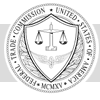 According to a FTC Press Release, FTC Charges Pitchmen with Deceptive Magazine Subscription Telemarketing
According to a FTC Press Release, FTC Charges Pitchmen with Deceptive Magazine Subscription Telemarketing
The Federal Trade Commission has charged several Pennsylvania-based defendants with violating the FTC Act and the Telemarketing Sales Rule (TSR) by calling consumers and telling them they were eligible to receive 'valuable coupons' for groceries and other items, when in fact they were luring them into signing up to purchase unwanted magazine subscriptions. The Commission's complaint states that the defendants, collectively known as Magazine Solutions, often did not tell consumers up-front that to get the coupons they had to buy the subscriptions, and sometimes claimed the magazines were free or that the consumers only had to pay shipping and handling. When consumers tried to cancel their orders, many found it was nearly impossible to do, and were stuck with subscriptions to magazines they never wanted in the first place.
According to the Commission's complaint, the defendants violated Section 5 of the FTC Act and the TSR through their sale of magazine subscriptions and a coupon-redemption program. Since at least 2002, the FTC contends, they telemarketed to consumers nationwide in a campaign that supposedly offered free coupons worth over $1,000, but actually was a pitch for magazine subscriptions.
According to the complaint, defendants typically place a series of telephone calls to consumers in which they misrepresent that they are calling to conduct a survey; misrepresent that they are not selling anything; and misrepresent that the consumer will receive valuable coupons worth over $1000. Eventually, defendants disclose that to receive the coupons consumers must agree to receive magazine subscriptions, but misrepresent the total cost and terms of the subscriptions.
The Commission also charges that many consumers refused defendants' offer and agreed only to receive information about it in the mail, yet defendants misrepresent that these consumers are legally obligated to pay and attempt to collect a monthly fee from them. The defendants also threaten to take legal action to collect payment from consumers if necessary, but do not. The FTC contends that in many cases, consumers never got the coupons that they were promised or never agreed to the defendants' offer to begin with, yet were charged hundreds of dollars and harassed and threatened by the defendants when they refused to pay for their 'service.' The defendants also reported consumers' failure to pay to credit bureaus.
The Commission specifically alleged that the defendants violated the TSR when they called consumers and often did not make it clear that they were offering products for sale, failed to disclose the total cost of their program before obtaining payment information, made misrepresentations to induce consumers to make a purchase, and misrepresented their cancellation policy.
The complaint names the following individuals and organizations as defendants: 1) Magazine Solutions, LLC, a Pennsylvania limited liability company also doing business as (d/b/a) MagazineSolutions, United Publishers' Service, and Read-N-Save America; 2) United Publishers' Service, Inc., also d/b/a Magazine Solutions, MagazineSolutions, and Read-N-Save America; 3) Joseph Martinelli, individually and as an officer of Magazine Solutions, LLC and United Publishers' Service, Inc.; 4) Barbara DeRiggi, a/k/a Barbara Nicely, individually and as a manager of Magazine Solutions, LLC and United Publishers' Service, Inc.; and 4) James Rushnock, a/k/a Jay Gilbert, individually and as a manager of Magazine Solutions, LLC and United Publishers' Service, Inc.
The FTC's complaint seeks to permanently bar the deceptive marketing and freeze the defendants' assets to preserve them for consumer redress. The Commission's filing comes shortly after the Pennsylvania Attorney General's Office filed contempt charges against defendant United Publishers' Service, Inc. for violating a previous court order prohibiting the company from, among other things, violating Pennsylvania's consumer protection law and the FTC's TSR.